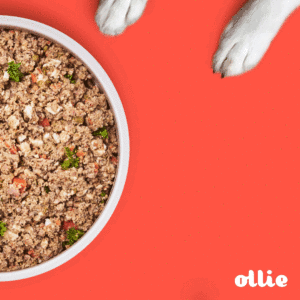CBD and Your Pup
Can Dogs Have CBD? – The Answer, And More!
Now that cannabis has re-emerged as a topic of public discourse and political action, it’s easy to forget that CBD was still largely unknown to the general public just a few short years ago.
Despite being made illegal in the 1930s, and only being reintroduced to the U.S. market in 2018, CBD has experienced explosive growth in the past few years. Manufacturers and distributors have raced to get in on the action, and now CBD is being harnessed by a wide range of businesses. From wellness brand consultants to biotech firms and everything in between, this seemingly endless stream of new entrants means there are now more CBD companies than we can ever explore in one article. What’s more, the market seems to be showing absolutely no signs of slowing down.
And, just like everything else in the world of CBD, dogs and CBD come with their fair share of myths and misunderstandings. To help you separate fact from fiction, here’s everything you need to know about getting your canine companion involved with CBD.

What is CBD?
CBD, or cannabidiol, is one of the two main compounds found in cannabis (the other is THC, or tetrahydrocannabinol). CBD is non-psychoactive and, unlike THC, is not associated with any kind of high.
Instead, CBD has been proven to treat a variety of medical conditions, including anxiety, nausea, inflammation, seizures, and more. While there’s no one “right” way to use CBD, most of the available research suggests CBD should be used for things like treating chronic pain and inflammation, as well as treating anxiety, nausea, and epilepsy.
The most common form of CBD is CBD Oil. These oils are made from CBD-rich strains of cannabis, which are then infused in a manner that allows them to be used as a medicine.
What does CBD do?
CBD interacts with the body’s own endocannabinoid system (ECS), which is responsible for regulating important functions such as mood, sleep, appetite, pain, and immune response. The ECS is made up of cannabinoid receptors, protein molecules that respond to CBD, and “regulatory” molecules called endocannabinoids.
When used topically, CBD acts as a non-psychoactive externa-l modulator of the ECS system. Through this mechanism, CBD can improve and modulate the effects of cannabinoid receptors, which can, in turn, affect various physiological processes.
For example, CBD has been shown to have anti-inflammatory properties, and can even be used to soothe joint pain caused by arthritis. It has also been shown to have neuroprotective qualities, meaning it can protect brain cells and reduce damage caused by neurological disorders like epilepsy and Parkinson’s disease.
Can dogs have CBD?
Cannabis and its various compounds are illegal under U.S. federal law, including CBD. However, CBD is legal in all 50 states without a prescription, and 29 states have passed legislation specifically legalizing CBD for medicinal use.
While there is a lot of information out there about CBD and dogs, there is no official word from the American Food and Drug Administration (FDA) about whether dogs can have CBD. CBD products for dogs are not approved by the FDA, so it’s difficult to know for certain if these products are safe or effective.
The best advice we can give regarding this topic is to educate yourself as much as possible before giving your pet CBD.
Is there any scientific research on dogs and CBD?
Unfortunately, there isn’t a lot of research on the effects of CBD in dogs. One study, conducted in 2016 and published in the journal Current Pharmaceutical Design, examined the use of CBD in dogs with osteoarthritis (joint disorder). After administering CBD oil to three dogs, the researchers found that “the CBD treatment induced a significant reduction in the disease activity as compared to the placebo treatment.”
Where to buy CBD products for dogs?
As noted above, CBD products for dogs are not approved by the FDA, so they aren’t exactly lab-tested and approved by the government. Because of this, it’s important to purchase CBD products for dogs from a reputable and trustworthy company. We recommend looking for certifications and other documentation from third-party testing facilities to ensure the CBD you’re purchasing is legitimate and free of contaminants.
Additionally, make sure the company you buy from is able to provide product shipping to all 50 U.S. states. While you may purchase CBD products from a company based in your home state, they may not be able to sell to customers in other states, which could lead to shipping issues.
Our top recommended online sources are:
https://www.ellevetsciences.com/
In collaboration with the Cornell University College of Veterinary Medicine, ElleVet conducted the first study examining how hemp is metabolized by dogs. Our products have been tested and approved by leading veterinarians and recommended by pet parents, industry leaders, and national media outlets. We combine a love of science with a love of animals.
Discover the complete line of CBD for pets from the most trusted brand in the industry, cbdMD. All of our premium products are made with the same unique Superior Broad Spectrum formula for all of the pets in your life. Find the right CBD products for your dogs and cats, no matter what their needs may be!
Green Roads CBD Oil is one of the best and most popular choices among CBD users. With a concentration ranging from 350mg to 3500mg, it’s a good choice for both beginners and those wanting to increase their dosage.
The Bottom Line
While there’s certainly a place for discussion around the potential benefits of CBD in dogs, it’s important to remember that products derived from CBD don’t have a prescription and aren’t FDA-approved.
Above all, remember to do your research before giving your canine companion any dietary supplement or medication. Don’t just take people’s word for it that CBD is good for your dog, instead, trust your own extensive knowledge and investigate for yourself.
As always here at candogeat.org we believe in feeding your pup a homecooked healthy meal plan. This can greatly improve the health of your dog.
We are not veterinarians though so if you have questions about your dogs health contact a veterinarian.




